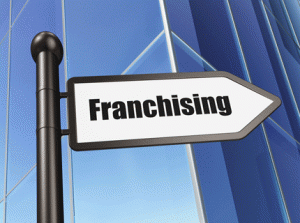Franchise blog,Blog.franchise,Starting a franchise is one option for people who want to enjoy the independence of entrepreneurship but still follow a clearly forged path.
In a franchise agreement, the franchisor, or parent company, sells the rights to their business’s name, product and brand to the franchisee, who owns an individual storefront of that company. The agreement lasts for a fixed term of up to 20 years but can typically be renewed.
Franchisees benefit from this arrangement by opening a business with a tried-and-true model and an established brand. However, they give up to the parent company control of business decisions such as site approval, design standards and product variation. It’s also up to the franchisee to cover the costs of starting the franchise, which often requires outside funding.
The costs
Starting a franchise requires many of the same expenses as starting an original business: real estate, equipment and inventory, among others. However, franchisees have to pay some unique costs in exchange for training, operating guidelines and marketing from the parent company.
Franchise fee: Most companies charge an up-front fee to start a franchise, paid in a lump sum or installments. The amounts vary by company, but they’re typically tens of thousands of dollars and are usually not refundable once a franchisee is accepted. For example, Jamba Juice charges $25,000 per store, and Hilton Worldwide charges $75,000 to start a 150-room Hilton Garden Inn.
Royalty and advertising fees: Many franchisors also regularly collect recurring royalty and marketing fees, typically charged as a percentage of a franchisee’s sales. These percentages also vary by company. For example, Subway franchise owners pay 8% a week for royalties and 4.5% a week for advertising, taken from the store’s gross sales minus sales taxes.
For specific companies’ franchise fees, refer to their Franchise Disclosure Document, which the Federal Trade Commission legally requires parent companies to give prospective franchisees. This file also includes information about the franchisor’s financial performance, franchisees’ obligations to the franchisor and financing options available.
options
As with other small businesses, finding financing for a franchise can be one of the biggest challenges owners face. There are some financing options unique to franchises, such as franchisor discounts on fees and online financing companies that cater to franchises. General business financing options including traditional and SBA-guaranteed loans are also available to franchisees.
The franchisor: Some franchisors help finance new franchises by waiving fees or partnering with lenders to help franchisees get loans. If a company does offer funding, it’s usually listed on their website and in section 10 of the Franchise Disclosure Document. Compare the terms of the franchisor’s financing with other options to find the best source of funding.
Franchise financing company: Several companies specialize in franchise funding by matching borrowers with lenders or lending directly. Examples include BoeFly, which has helped Dunkin’ Donuts and Great Clips franchises get funding, and Franchise America Finance, which funds franchises including Corner Bakery Café and FastSigns.
loan: Banks and credit unions are a source of financing for all businesses, including franchises. New franchise owners are 15% more likely to use a commercial bank loan than other new business owners, according to the U.S. Small Business Administration. Lenders are more likely to finance franchises of an established brand that has proven successful in a variety of markets in the past.
Related Post:
1. Encouraging Signs for Intersolar India 2014
2. Franchise Market in India 2014 Report Analysis
3. How SEO(Search Engine Optimization) useful for small franchise business
4. Honeywell celebrates scanning innovation on 40th Anniversary of the Barcode 2014































 +91 9909960054
+91 9909960054
Pingback: Manoj